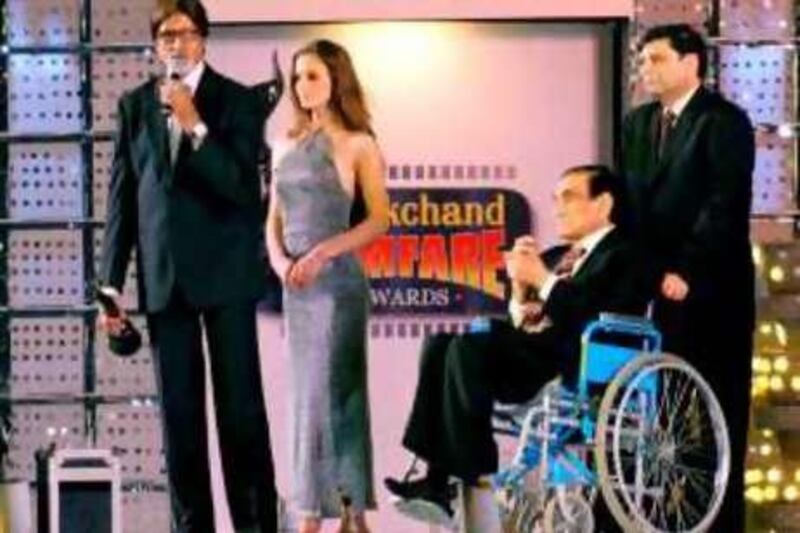Baldev Raj Chopra, one of Bollywood's most respected directors, died earlier this month after an illustrious career which spanned more than five decades and produced more than 30 films. From the 1950s onwards, Chopra distinguished himself from his contemporaries in the film industry by tackling complex social issues that many considered taboo in the still conservative India of the mid-20th century. Nonetheless, he won a wide and loyal audience.
His belief that film should not merely entertain, but also serve a higher social purpose, as a mirror to the many contradictions and ambiguities inherent in human behaviour, informed his subject matter: the rehabilitation of prostitutes (Sadhana, 1958); divorce and its impact on women (Nikaah, 1982); and, most shockingly for the time, the topic of rape, in Insaaf-ka-Tarazu (1980), which was probably the first time the subject was addressed in a Hindi-language film. Kanoon, his 1961 courtroom drama, broke the Bollywood mould as the first film to gain critical and commercial success despite not having any songs.
His films did not always court controversy. Many adhered to the standard Bollywood themes of families assailed by natural disasters, confusion arising from mistaken identity and the perennial favourite of the rags-to-riches saga. Yet Chopra never seemed entirely at ease with the Bollywood prototype, frequently hiring unknowns over the big stars of the day and lamenting in later years the detrimental effect that fame and money had on the industry.
Born into a middle class Hindu family in Ludiana, Punjab, in 1914, Chopra was one of seven children of a government officer and spent most of his childhood in what is now Pakistan. After an MA in English literature at Lahore University, he failed the examinations to become an Indian civil service officer and turned instead to film journalism, becoming editor of the popular magazine Cine Herald in 1938.
His earliest attempt to break into film - Chadni Chowk, later released in 1954 - was frustrated by the instability that followed the partition of India, which forced his family to flee to Delhi and then to Mumbai. The sole source of income after his father's death, Chopra later brought his extended family to bankruptcy when Karwat, his first feature-length film as a producer, bombed. On the advice of the film financier, Goverdhandas Agarwal, he switched to directing. His debut, Afsana, a thriller starring Ashok Kumar as twin brothers representing good and evil, was released to acclaim in 1951.
In 1955 he founded his own company, BR Films, which produced a raft of work now considered classic, including the 1957 hit Naya Daur, in which a village resists the replacement of its bullock-drawn cart with a bus as a means of public transport. Shot in the first decade of Indian independence, as a number of economic and development initiatives for rural communities were introduced under prime minister Jawaharlal Nehru, the film explored the tensions between traditional modes of life and modernising reforms, one of Chopra's chief preoccupations throughout his career.
The Chopra family was dedicated to film, with BR's son Ravi and several brothers working in the industry. His younger brother, Yash, who worked as a producer on many of Chopra's films, went on to become the pre-eminent filmmaker in Bollywood history after leaving BR, much to the latter's distress, to start his own production company in the 1970s. During the late 1980s, as the popularity of television grew, Chopra captured the nation's attention every Sunday morning with Mahabharat, a mythological serial based on a Hindu epic story of princes and kings. It was one of the most watched Indian television serials ever broadcast.
In 1999, he was awarded the Dadasaheb Phalke Award by the Indian government for his lifetime contribution to Indian cinema. Chopra was born April 22, 1914, died Nov 5, 2008, aged 94. He is survived by his son and two daughters.





